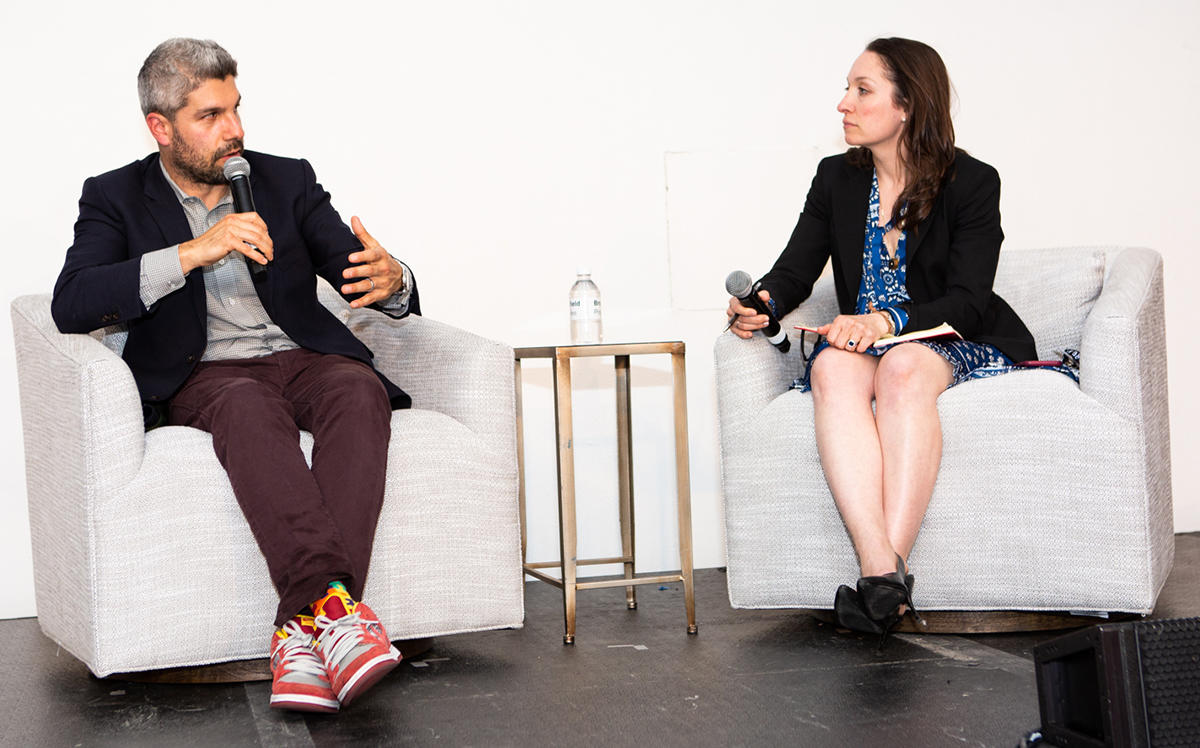The title of the canceled sitcom “Don’t Trust the B in Apartment 23,” was a tongue-in-cheek reference to the show’s antihero protagonist.
In the world of venture capital, the “treacherous B” has a different meaning.
“The series B round is known as the treacherous B,” MetaProp co-founder Zach Aarons explained Wednesday afternoon at The Real Deal’s 12th annual new development showcase in Chelsea.
Aarons said many startups make it to the Series B round because they’ve typically shown an enormous amount of traction very quickly. At that point, the VC investor has a decision to make.
If given more money, can the startup take that prior traction and “cross the chasm,”- VC speak for exploding and becoming the next startup behemoth.
“Or is this going to be a niche product forever, and I’m essentially pouring gasoline on a fire that’s just puttering,” he explained. “And, by the way, could putter on forever and be a great business, but is not going to be a high-growth venture capital business.”
The treacherous B, Aarons went on, was the downfall of real estate crowdfunding platform RealtyShares, which had previously raised $63 million but went bust last year after failing to secure more venture capital.
“It wasn’t necessarily a problem that was exclusive to RealtyShares; It was a problem of the industry that no one really was able to foresee,” said Aarons, who was an early angel investor in the company and funded other ventures by the firm’s founders.
Over the span of a roughly 40 minute one-on-one interview with TRD senior reporter E.B. Solomont, Aarons gave his perspective on the state of the proptech field.
VC investment in proptech last year slid 23 percent to $9.6 billion from the previous year, Solomont pointed out.
Aarons said top-line numbers like that don’t tell the whole story, because mega-investors like SoftBank’s Vision Fund can move the needle in any given year with a few big checks.
“SoftBank skews the whole market,” he said.
The Metaprop co-founder said one metric he pays attention to is the ratio of proptech investment relative to financial tech, which he said stands somewhere between 10 and 20 percent.
“People ask me all the time, “What inning are we in in the proptech evolution?” There are some sectors we look at in proptech where forget inning; we’re not even in the stadium,” he said. “We’re like tailgating outside the stadium right now.”
And Aarons wrapped up discussing how his experience as a Big Apple real estate investor has helped him in the world of early-stage proptech venture capital, where the fake-it-until-you-make-it mentality leads to a lot of self-serving spin.
“That level of transparency is unfortunately lacking in many parts of the VC world,” he said. “The kind of tough talk that a New York real estate person brings is a lot of fresh air for these entrepreneurs.”
